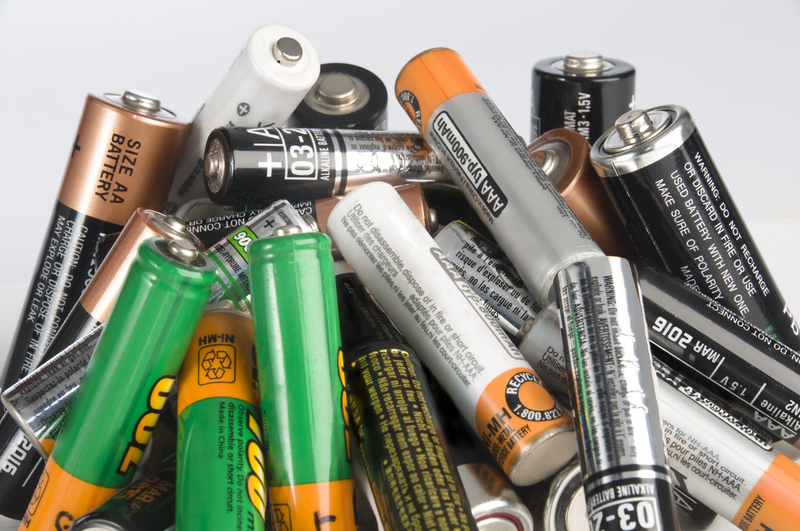Unveiling the Advantages of Recycling Metal Materials
Recycling metal materials is an ever-growing trend as societies worldwide become increasingly aware of environmental sustainability. This article will explore why recycling metals is so crucial, the various benefits of recycled metals, and how it contributes to a better future for our planet.
The Importance of Metal Recycling
Metals are ubiquitous in everyday life, from aluminum cans to steel beams. Practical metal recycling programs are essential because of their non-renewable nature. Unlike organic waste, metals do not decompose; therefore, they add significant value when recycled effectively. Recycling metals not only saves natural resources but also minimizes the negative environmental impacts associated with metal manufacturing.
Environmental Benefits
The environmental advantages of recycling metals are immense. The process of mining, refining, and processing metals into useful materials consumes large amounts of energy and causes pollution. By recycling, we can significantly reduce the carbon footprint associated with metal production. Here are some crucial environmental benefits:
- Conservation of natural resources: Recycling conserves valuable natural resources like bauxite, iron ore, and other minerals.
- Reduction of greenhouse gas emissions: Producing metals from recycled materials releases fewer greenhouse gases than creating them from virgin ore.
- Energy savings: Recycling metals can save up to 95% of the energy required to produce new metal from raw materials.
- Decreased pollution: Less energy use and fewer emissions lead to decreased air and water pollution.
Economic Advantages
In addition to its environmental impact, recycling metals brings several economic benefits. It supports the economy by creating jobs and reducing the costs associated with metal production. Below are some economic reasons why recycling metals makes sense:
- Job creation: The recycling industry creates thousands of jobs, from collection and processing to resale.
- Lower production costs: Manufacturing with recycled metals is often cheaper than using virgin materials, lowering manufacturing costs.
- Export opportunities: Recycled metals are a commodity that can be exported to countries in need, generating revenue.
Community and Social Benefits
Community and social benefits also play a significant role in why metal recycling is advantageous. By fostering community involvement and awareness, recycling drives a societal shift towards sustainability.
- Community engagement: Recycling programs encourage participation from organizations and individuals, promoting environmental responsibility.
- Educational opportunities: Communities can use recycling programs as educational tools to teach about sustainability and conservation.
- Improved public health: Reduction in pollution levels, thanks to metal recycling, leads to cleaner air and water, enhancing the community's overall health.

Commonly Recycled Metals
Different types of metals have distinct recycling processes and demand levels. Some of the most commonly recycled metals include:
Aluminum
Aluminum is one of the most widely recycled metals. Aluminum cans, as well as structural and automotive aluminum materials, are extensively recycled due to their high value and low cost of recyclability.
Steel
As one of the world's most recycled materials, steel can be found in construction, automobiles, and appliances. Its magnetic properties make it easy to separate from other waste streams, making steel recycling highly efficient.
Copper
Copper recycling is critical due to its widespread use in electrical equipment and plumbing materials. With its high conductivity and value, copper is among the most lucrative recyclable metals.
Lead
Recycling lead, often found in batteries and protective shielding, helps reduce the environmental concerns of lead mining and processing.
Challenges and Solutions in Metal Recycling
Despite its numerous advantages, recycling metals does pose certain challenges. Understanding these challenges is key to optimizing the recycling process:
Contamination
Contamination is a significant challenge, as mixed metals can degrade the quality of the recycled product. Efficient sorting methods and improved waste management practices are essential to address this issue.
Collection and Transportation
Arranging effective collection and transportation systems can be costly and logistically complicated. Partnerships between government entities and private enterprises can help streamline these processes.
Technological Advances
Keeping pace with technology is crucial. Innovative recovery technologies and automated sorting mechanisms can significantly enhance metal recycling efficiency and output.

The Future of Metal Recycling
The future of metal recycling looks promising with continual advances in technology and growing awareness about environmental conservation. As societies progress towards sustainable living, the integration of more sophisticated recycling systems, combined with comprehensive education about the importance of recycling, will further enhance the industry.
Policy and Legislation
Policies and legislation adopting recycling practices are imperative for a sustainable future. Governments around the globe are increasingly implementing stricter regulations and incentives to encourage recycling, which will undoubtedly help improve recycling rates.
Innovation in Recycling Technologies
Emerging technologies are expected to revolutionize recycling capabilities. These innovations can minimize the cost challenges and offer solutions to existing recycling plant limitations.
Consumer Responsibility
Increasing consumer awareness and responsibility can drive up recycling rates. Educating individuals and communities on the crucial role they play in the recycling process is vital to enhancing participation.
Conclusion
Recycling metal materials is an integral component of our push towards environmental sustainability, offering numerous environmental, economic, and community benefits. Overcoming current challenges with technological innovation and policy will be essential to enhancing the efficiency and effectiveness of metal recycling. As more individuals become educated about the advantages of recycling metals and participate in these efforts, the benefits will be substantial for generations to come.